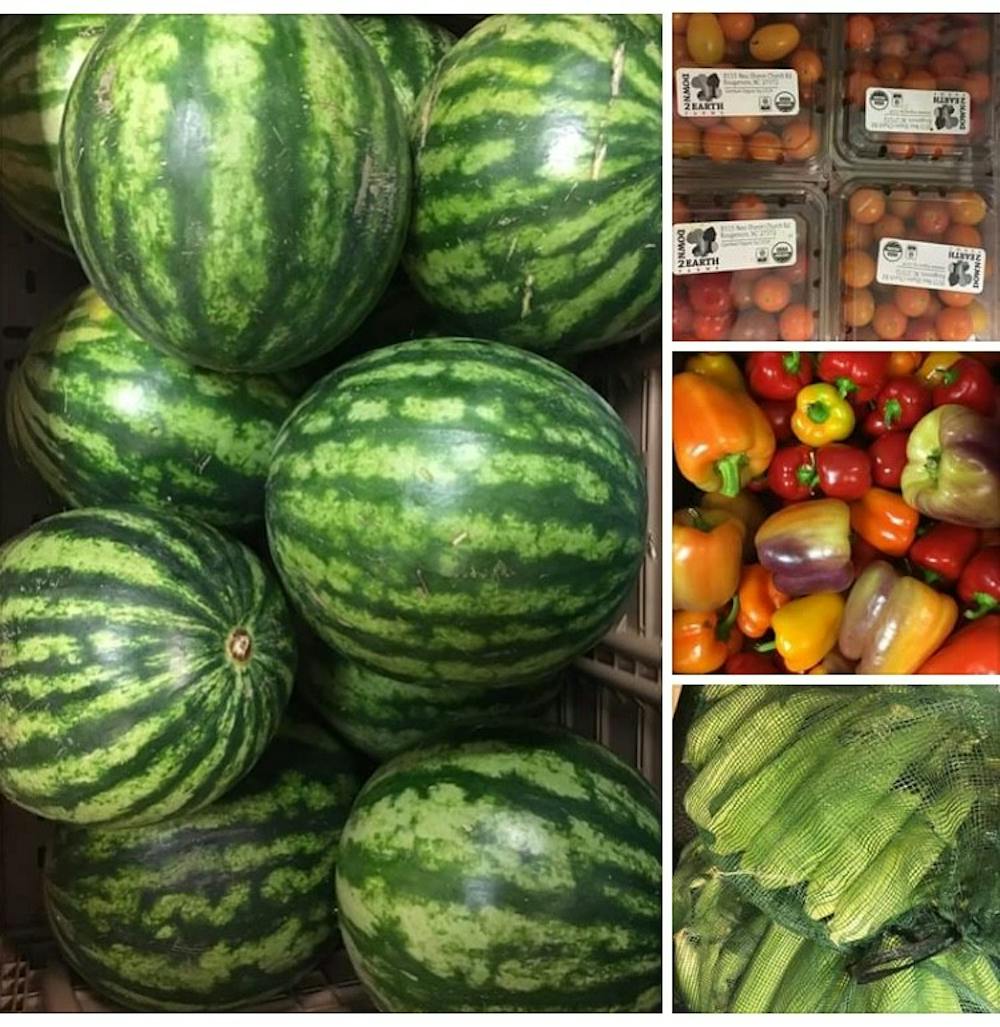Tippins said the organization protects the identity of all the children receiving food bags. Typically younger kids are excited about receiving their bag of food, Tippins said, “but as kids get older — fourth and fifth grade and middle school — they’re a little more self conscious.”
Children who are food insecure might experience health problems such as obesity and lower self esteem, she said.
“Most people know at this point that kids do not do as well or succeed as well in life when they’re hungry or do not have the nutrition that they need, she said. “By providing the food to the children that we serve, they have a little bit better opportunity to their more affluent counterparts to succeed academically, have good relationships, not miss as much school and be healthy in general.”
Fuel Up
In Pittsboro, Perry Harrison Elementary has its own backpack nonprofit, Fuel Up, that provides students with nutritional needs during weekends and breaks.
Jennifer Buckmire, Fuel Up's chairperson, said community members recognized the children suffering from food insecurities in the county in 2008. Because of the diverse socioeconomic scale in the county, there was a big movement to push for backpack programs, she said.
“They started in a teeny tiny closet at the school and had 15 bags they started sending home and then by the end of the first year they were up to 30,” she said.
The elementary school is currently serving 52 students out of 788 students enrolled.
“Our policy is we’re not just going to feed one kid for the weekend and they don’t know if they’re going to get a bag next weekend," Buckmire said. "We make sure we got the money and food to support them for the entire school year."
She said they have a system in place where volunteers are divided into shopping for the food, coordinating the food donations, constructing the menu, customizing the food bags, assembling the bags and dropping them off with the teachers.
Each weekend, the students have three dinners, two lunches, two breakfasts, and two beverages such as shelf stabled milk or 100% orange juice. The nonprofit also sends home fresh fruit and snacks.
“There’s lots of things that go along, lots of academic challenges-physical, nutritional, mental cognitive challenges-that go along with food insecurities and hunger,” Buckmire said. “Not only does it affect that kid in how they concentrate and how they learn and how they behave, it can be a domino affect for their classmates.”
To get the day's news and headlines in your inbox each morning, sign up for our email newsletters.
Inter-Faith Food Shuttle
Inter-Faith Food Shuttle is a nonprofit organization that recovers and distributes food to low-income families. One of their programs, BackPack Buddies, provides about 2,300 children with backpacks of food for the weekend.
Cindy Sink, Inter-Faith Food Shuttle's director of community impact and advocacy, said there is always a waiting list, and they plan to serve over 3,000 children in the next year or two.
“As we were working in the communities, the teachers of the schools were telling us that these kids are going home at night and are not having anything to eat,” she said.
BackPack Buddies serves about 72 schools in Wake, Durham, Orange, Chatham, Johnston and Nash county.
North Carolina is the eighth hungriest state in the nation.
“Children are at risk of being hungry, there's just no question about it, and there are pockets even in wealthy countries where this is true,” she said.
In Wake County, over 33 percent of children are food insecure, according to a 2016 report by the Food Bank of Central & Eastern North Carolina.
“As long as North Carolina is ranked as high as it is in food insecurity and as long as there are any hungry children, there is just no excuse,” she said.
city@dailytarheel.com



